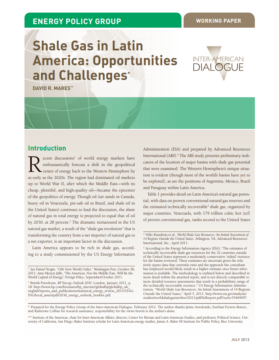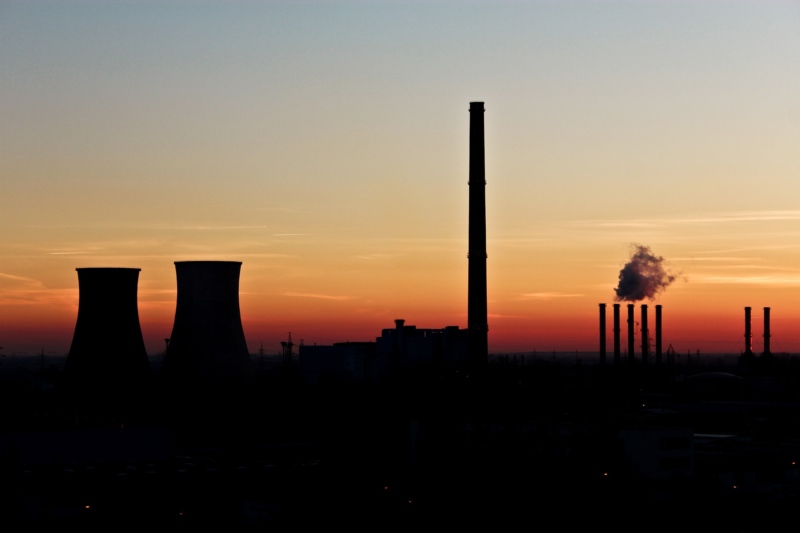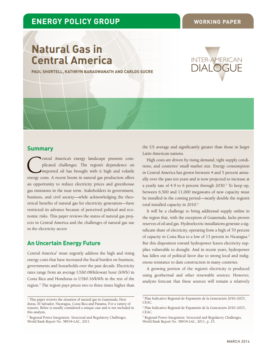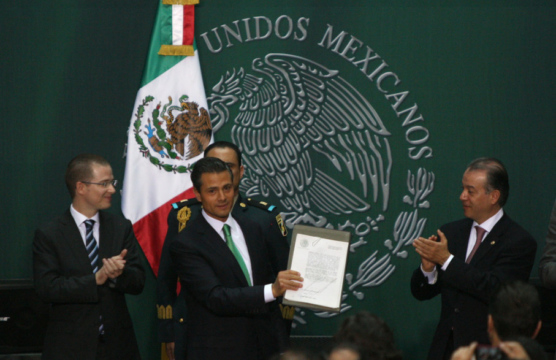
Shale Gas in Latin America
Unless resource nationalism can be made compatible with providing incentives for significant foreign participation, it may be too early to start trumpeting a bonanza for Latin America.
This post is also available in: Español
As delegates from around the world finish up their business in Glasgow at the United Nations climate conference, Mexico has not increased its emissions-mitigation goal, as countries pledged under the 2015 Paris Agreement.
Its president, Andrés Manuel López Obrador, is doubling down on policies that would make his country the second-largest greenhouse gas emitter in Latin America and the 16th largest in the world, even more of a polluter.
An old-fashioned leftist who grew up in Mexico’s oil-producing region, Mr. López Obrador has long supported the government-owned electric utility Comisión Federal de Electricidad, or C.F.E., and the government-owned oil producer, Petróleos Mexicanos, or Pemex, as sources of jobs and economic growth, and denounced privatization for shifting profits to the benefit of a few corporations. Those energy behemoths have done little to reduce emissions from fossil fuels, while private investments are behind many solar and wind projects in Mexico.
But when Mr. López Obrador took office about three years ago he began to undo reforms undertaken by his predecessor, Enrique Peña Nieto, that allowed more private energy investment. This counterreform significantly undermined Mexico’s ability to promote clean energy and lower emissions. Mr. López Obrador has said his aim is to balance the private and public energy sectors and secure energy independence for Mexico, apparently by removing private competition from the debt-ridden public companies.
[...]
Unless resource nationalism can be made compatible with providing incentives for significant foreign participation, it may be too early to start trumpeting a bonanza for Latin America.
Natural gas has the potential to reduce Central America’s high energy costs and mitigate its dependence on imported oil.
The results of Mexico’s energy reforms may fall well short of government promises and public expectations.
 Pexels / 9144 Images / Pixabay / CC0
Pexels / 9144 Images / Pixabay / CC0

 Video
Video